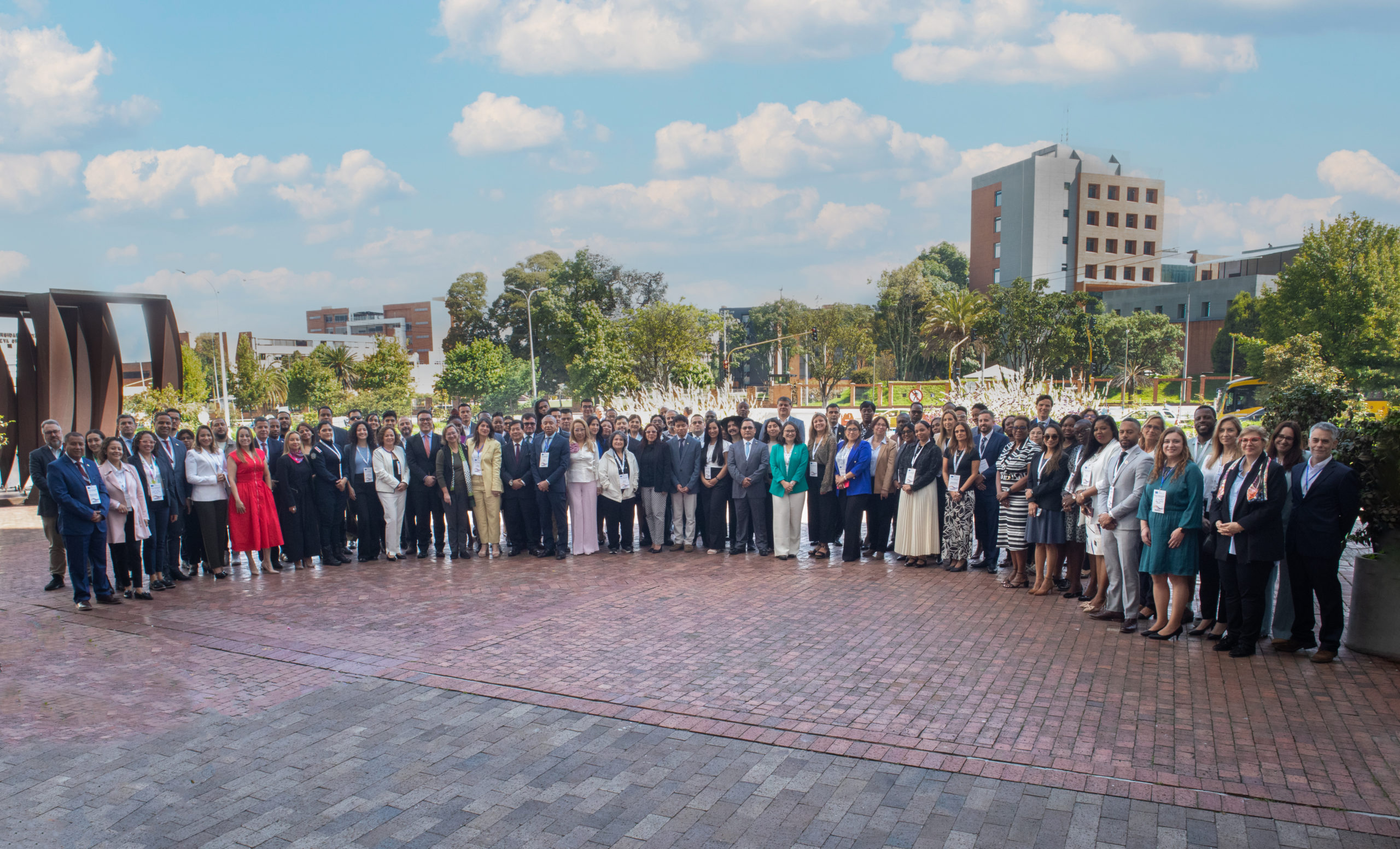Saint Kitts and Nevis Officials Participate in Regional Youth Protection Dialogue
The Youth Protection Seminar, held in Bogotá, Colombia from March 25-27, 2025, served as a crucial platform for international collaboration and knowledge sharing on bolstering child and youth protection systems. Organized under the European Union’s EL PAcCTO 2.0 Programme, the seminar brought together a diverse assembly of policymakers, justice system actors, and youth development specialists from Latin America and the Caribbean. This gathering aimed to address the escalating challenges posed by organized crime and social vulnerabilities, particularly their impact on young people. Saint Kitts and Nevis, represented by Permanent Secretary (Ag) in the Ministry of Justice and Legal Affairs, Ms. Nerissa Williams, and Permanent Secretary in the Ministry of Social Development and Gender Affairs, Ms. Azilla N. Clarke, actively participated in the discussions, demonstrating the nation’s commitment to advancing youth-centric justice sector reform and social development policies.
The seminar’s agenda covered a wide spectrum of critical topics, including the gendered impact of organized crime on adolescents, emphasizing the differentiated experiences and vulnerabilities faced by young boys and girls within the context of criminal activity. The discussions delved into the intricacies of restorative justice and juvenile diversion programs, exploring alternative approaches to traditional punitive measures that prioritize rehabilitation, reintegration, and reconciliation. Experts shared insights into multi-tiered prevention strategies, highlighting the importance of comprehensive approaches that address risk factors at individual, family, community, and societal levels. These strategies seek to prevent youth involvement in crime by addressing underlying issues such as poverty, lack of education, and exposure to violence. For the Saint Kitts and Nevis delegation, sessions focusing on restorative juvenile justice practices, community-based prevention models, and the role of public policy in fostering youth resilience held particular significance. These areas aligned with the nation’s ongoing efforts to strengthen its youth protection framework.
Ms. Williams emphasized the value of the seminar in providing a forum for regional partners to discuss practical solutions for enhancing national justice responses to youth vulnerability. The opportunity to learn from diverse experiences and best practices from across the region was invaluable. She underscored the importance of adopting a coordinated, rights-based approach across institutions to effectively address the complex challenges faced by vulnerable youth. This integrated approach requires collaboration among various government agencies, civil society organizations, and community stakeholders to ensure that young people’s rights are protected and their needs are met. The seminar reinforced the critical need for interagency collaboration and a holistic approach that considers the multifaceted nature of youth vulnerability.
Ms. Clarke highlighted the cross-cutting relevance of the seminar’s themes to the work of the Ministry of Social Development and Gender Affairs. She stressed the importance of integrated policy development between the justice and social sectors, emphasizing the need for a cohesive and collaborative approach to address the interconnected challenges of youth justice and social development. This integrated approach recognizes that addressing youth vulnerability requires a comprehensive strategy that encompasses both preventative and responsive measures. Effective collaboration between the justice and social sectors is crucial to ensuring that prevention, protection, and rehabilitation services effectively support young people and address their diverse needs. This integrated approach will enable a more holistic and effective response to the complex challenges faced by vulnerable youth.
The seminar, facilitated by the European Union, the EL PAcCTO 2.0 Programme, and the Government of Colombia, provided a timely opportunity for Saint Kitts and Nevis to learn from regional best practices and strengthen its national strategies for youth protection. The lessons learned from the seminar will be instrumental in shaping future policy development and program implementation. They will inform national efforts to enhance social justice, expand restorative mechanisms within the juvenile justice system, and reduce the risks faced by children and youth in contact with the law. This comprehensive approach aims to create a more supportive and protective environment for young people in Saint Kitts and Nevis, ensuring their well-being and contributing to a safer and more just society.
The Government of Saint Kitts and Nevis expressed its gratitude to the organizers for facilitating this important exchange of knowledge and expertise. The participation of the two Permanent Secretaries underscored the nation’s unwavering commitment to prioritizing the well-being of its youth and strengthening its systems for their protection. The insights gained at the seminar will be invaluable in informing national policy development and program implementation, contributing to more effective and sustainable solutions for addressing youth vulnerability and promoting social justice. The seminar served as a catalyst for strengthening regional cooperation and advancing best practices in youth protection, highlighting the importance of collaborative efforts to address the complex challenges facing young people in Latin America and the Caribbean.
Share this content:












Post Comment